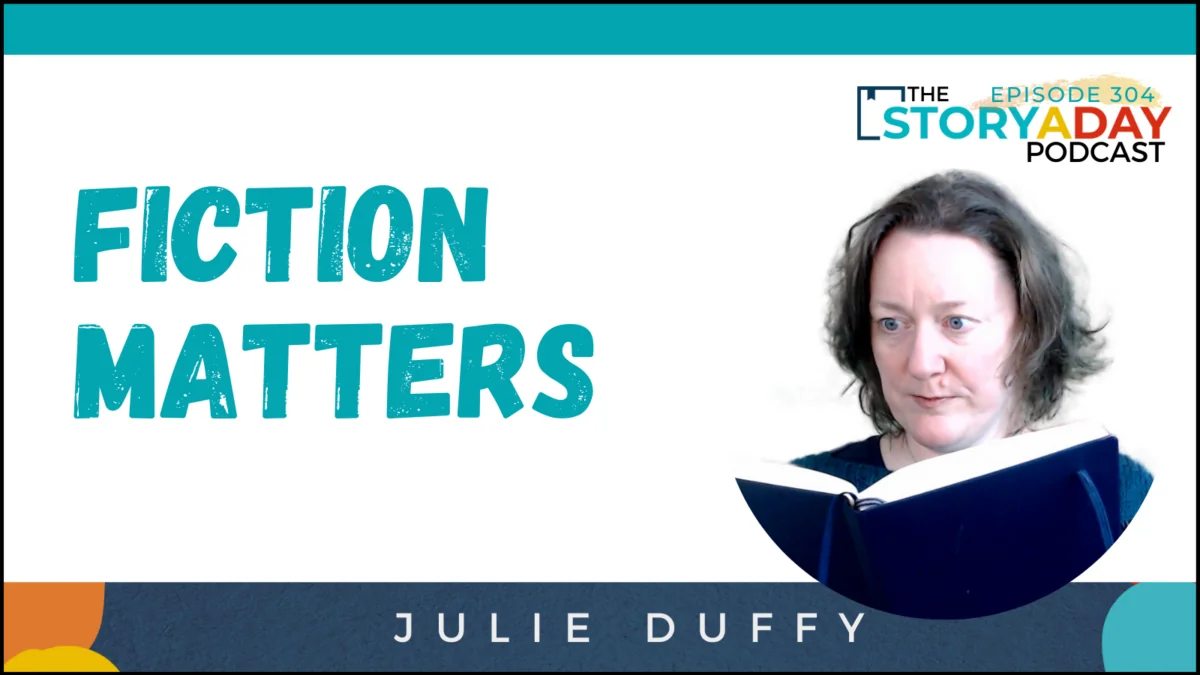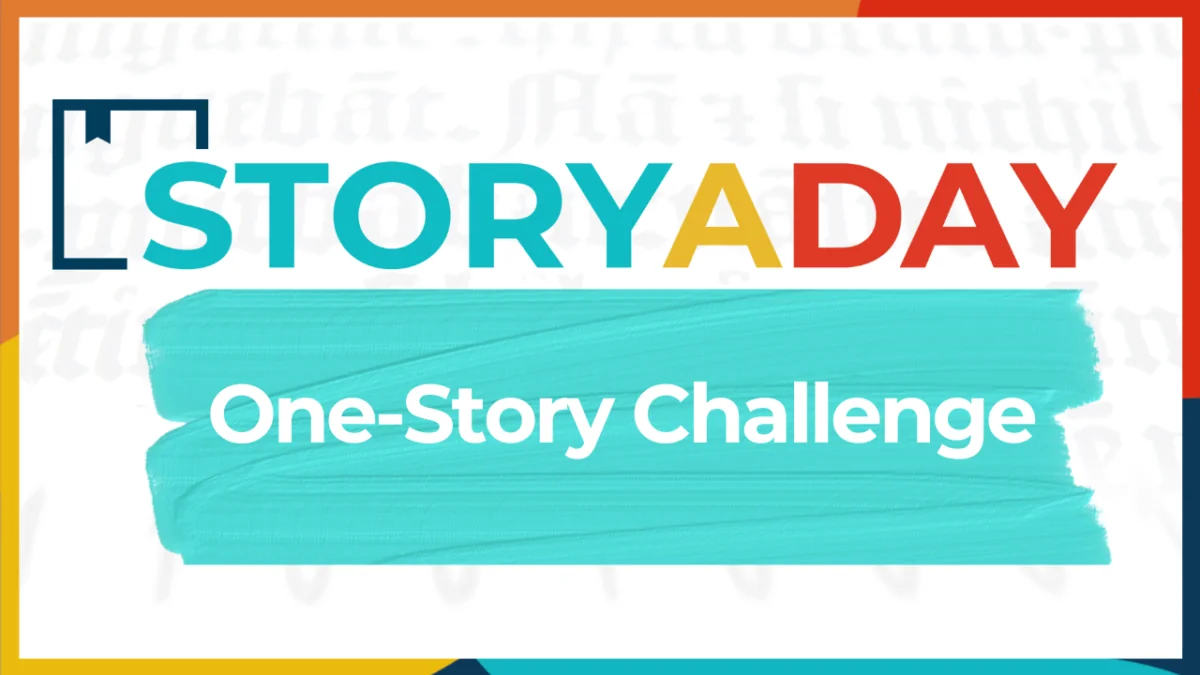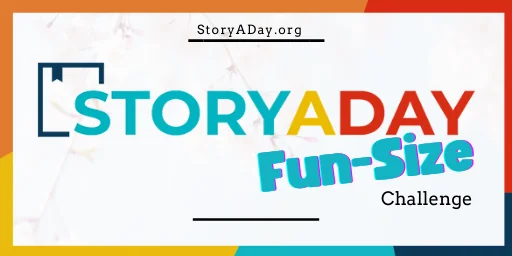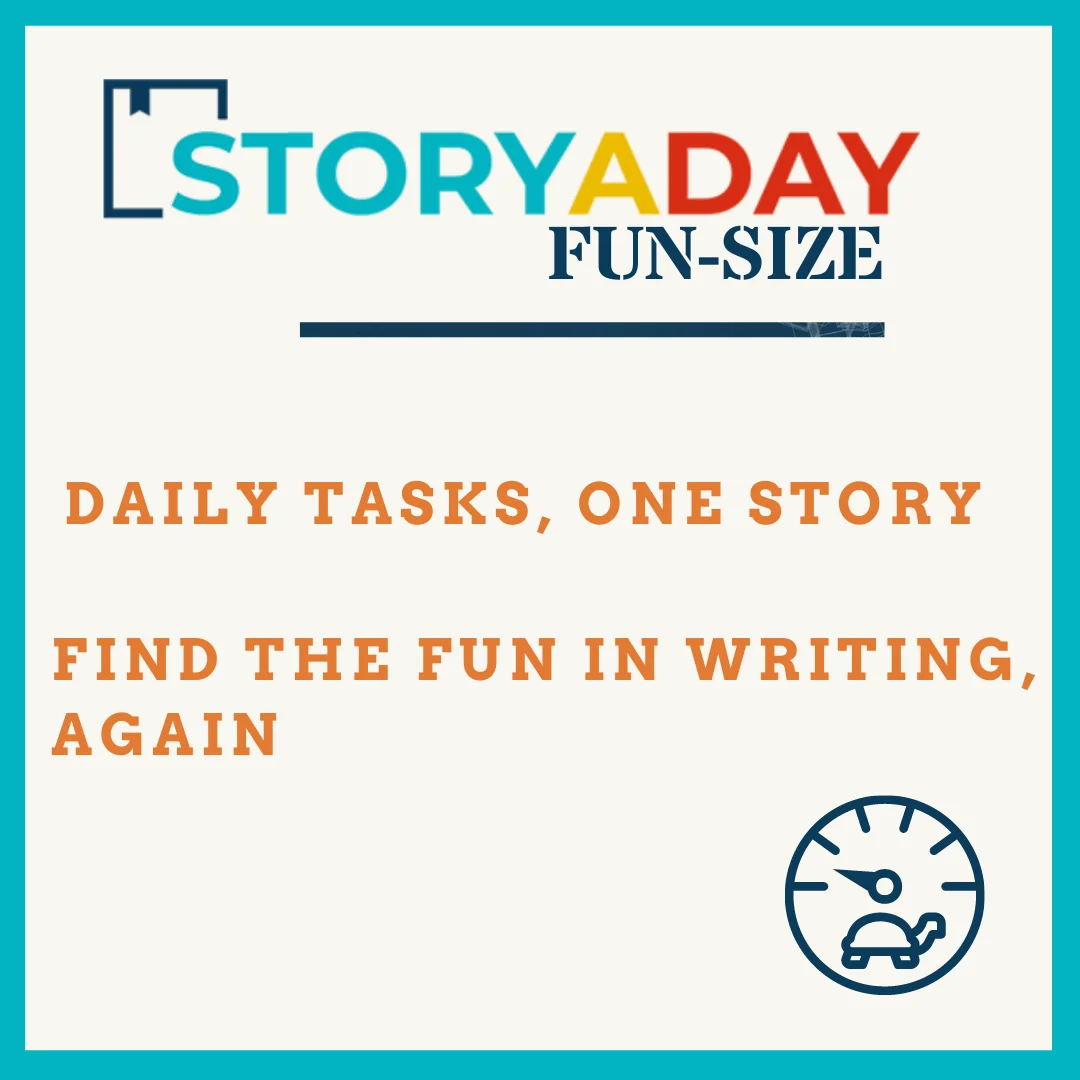In which I talk about Mary Oliver and the power of words to lift us out of the everyday.
I also invite you to take part in the January Challenge, a five-day exercise that will make you more decisive around your fiction and every aspect of your writing life.
Sign up here: https://storyaday.org/jan-challenge
Transcript
Good morning. Good evening. Good afternoon, Julie from story a day here.
I’m going to be inviting you today to join me next week in a free mini challenge that’s going to set you up for the year ahead for the life ahead. And it’s, it’s a challenge that helps you get back in the groove with your writing helps you stay on track.
I’ll send you five tiny little lessons over the week and you’ll build a tool that will help you in your writing everyday.
Sign up right now and, and we’ll go from there.
Fiction Matters
But I wanted to. Read you something today that I wrote, this week. In case you are wavering in your commitment to your fiction, in your courage around your fiction, in case the world is beating you down and telling you that fiction doesn’t matter and you should be doing more important things.
I don’t think there’s much more. Important work than
stimulating peoples imaginations, giving them hope. Giving them a respite from the world. So here’s what I wrote one morning this week.
When it seems. Like everything in the world is terrible. How can I possibly justify writing about. Or playing with my imaginary friends. When there’s so much news to catch up on to care about. So many causes to champion. Persecuted groups to try and save. How can I possibly find the time and energy for creative acts?
It’s a real question.
But we creative people must be courageous enough to try.
Because we can write beautiful, inspiring. Terrifying. Hopeful things. That lift people out of their everyday experiences and show them how they are part of something bigger than themselves. Not everyone can do this. But you can.
This morning, I read an essay by the poet, Mary Oliver. In which she talked about Walt Whitman as if he really was her friend although I don’t think they ever met. She only met him on the page. She took him everywhere with her and he lifted her when times were difficult.
And I thought about all the times and places where I’ve heard Mary Oliver’s poems quoted, on social media, at business conferences. Poetry is possibly the most exalted and derided. Form of writing that there is: how are you ever going to make money from poetry? Nobody makes money from poetry.
And yet poetry reaches us in a way that sermons and lectures and essays can’t do.
I thought about the pause, the hush in the room, the sense of respite that her words provide.
In March of 2020, what did everyone reach for, to lift themselves out of the fear and uncertainty that the news was dishing up to us? Art. Stories. Stories made up by writers. Stories brought to life by actors. Stories sung by musicians. Wordless music shared from makeshift kitchen stages.
Humans can be rational creatures, but we don’t thrive on logic alone. So today, please, step away from the real world and create something true. Something that reminds me, that takes me into a moment of being human that I couldn’t experience otherwise.
Tell me about the sunrise over Martian mountains, or the houses where you live.
Show me a morning glory flower, unfurling.
Give me a moment of true connection between two characters when one finally learns the care, or terrify me as another character stands to lose everything that matters to them.
The world can overwhelm us and the only way to cope is to avoid or to shut down our feelings. So please write something that reminds me to feel. Remains me to fear. Reminds me to hope. Reminds me to love.
I realize the irony of delivering a kind of persuasive essay and then telling you that fiction is a much better way to persuade anyone of anything. And yet I’m doing it.
I think your teachers misled you. I don’t think persuasive essays should be called that they should be called. Informative essays. Because they don’t change hearts. Emotion persuades. And there is no better way to convey emotion, even though I’m doing it in an essay, than through the arts.
There’s no easier way to create empathy for others than by making me care for your characters.
So no, writing fiction is not an irresponsible use of your time, during difficult teams or any other times in the world.
It is necessary. It’s generous. It’s healing.
It’s a gift.
Thank you for writing.
Other Ways To Increase Your Joy Around Writing
Download the Short Story Framework:
Take the 3-Day Challenge
Sign up for the StoryAWeek Newsletter
Take the I, WRITER Course
Join the Superstars Group
https://storyaday.org/superstars





